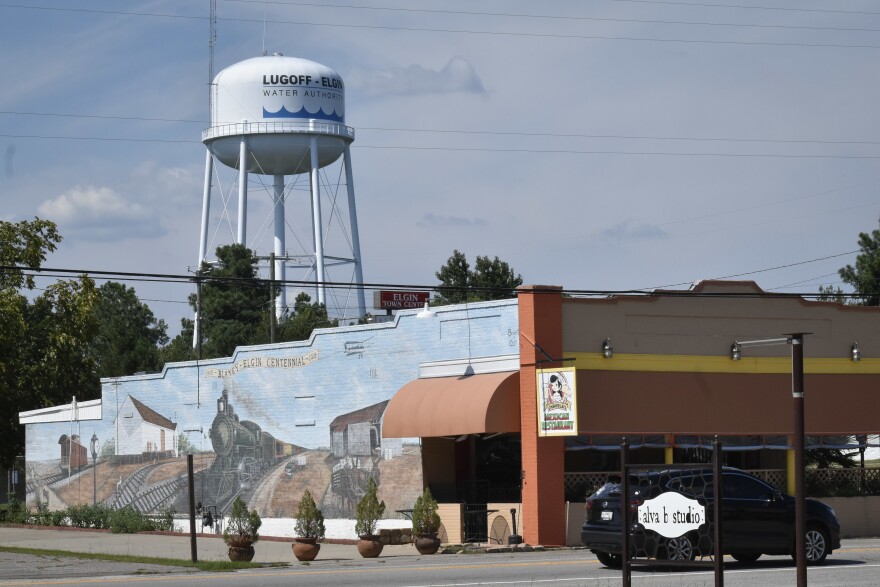ELGIN, S.C. — David Horne remembers exactly where he was when the first earthquake hit his town of Elgin, S.C., on Dec. 27, 2021.
He was relaxing on his front porch, while his wife was inside caring for their young grandson. Suddenly, Horne felt the ground shake and heard a noise like thunder boom across the sky.
"And as soon as it happened, I got out of my chair and I went and told her, 'That was an earthquake. That was a 3-point-plus,'" he said.
Horne used to live in Alaska, where earthquakes are more common, but his wife, Whitney Horne — a lifelong South Carolinian — said she wasn't sure what had happened.
"Because I'd never experienced an earthquake," she said. "We're in South Carolina! You don't have earthquakes that you feel in South Carolina."
Sure enough, it was a 3.3 magnitude earthquake — too small to cause damage but big enough to light up the town's Facebook page with dozens of excited comments.
At first, David Horne said, he thought it was cool.
"Wow! An earthquake," he remembered thinking. "I've heard there was a big fault line around here. And that's all I thought about it."
Then, what seemed like aftershocks began — and never stopped. Days and months after that first quake, the ground would rumble while the Hornes were out shopping or at night, while they were in bed, and the shaking has shown no signs of stopping.

"I mean, literally, it seems like we have an earthquake every week. It's not even a surprise anymore," David Horne said.
The U.S. Geological Survey has recorded more than 60 small earthquakes near the town since that first quake in December. The largest — a magnitude 3.6 — rumbled through in late June.
All the shaking has fascinated geologists, who've said this is the longest-running series of earthquakes in recent South Carolina history.
South Carolina's state geologist, Scott Howard, has been investigating these earthquakes with help from other experts. He said scientists refer to this phenomenon as an earthquake "swarm" — that is, a series of small earthquakes with no apparent mainshock.
"They could be a magnitude 2, 3, 1, 2," he said. "It just kind of bounces up and down."
South Carolina is on a minor fault line, Howard said, and the state has had swarms before. In the 1970s, a series of small earthquakes was traced to the creation of the Monticello Reservoir.
When the reservoir was filled with water, it put indirect pressure on the underground fault, Howard said, setting off the string of minor earthquakes.
This time, however, there's no clear explanation. Howard said it's possible heavy rain may have played a role early in the year, but it's hard for scientists to know for sure.
Many residents have worried the swarm is building up to a big earthquake, though seismologists have said that's unlikely.
Still, emergency officials have told people to look into earthquake insurance, and some have, like retired postal worker Phil Crowley, who moved to Elgin a year ago.
"You know, what can you control? You can control getting insurance. That's about it," Crowley said.
He and his wife don't think a big earthquake will hit, but they worry.
"She'll look at me when we're going to sleep and say, 'I hope it's not going to be tonight,'" he said.
If it is, they're ready. They keep two bags packed with clothes and other essentials sitting by their front door, just in case.
As for earthquake safety, the American Red Cross says: "Stay indoors until the shaking stops and you are sure it is safe to exit."
Copyright 2022 NPR. To see more, visit https://www.npr.org.





